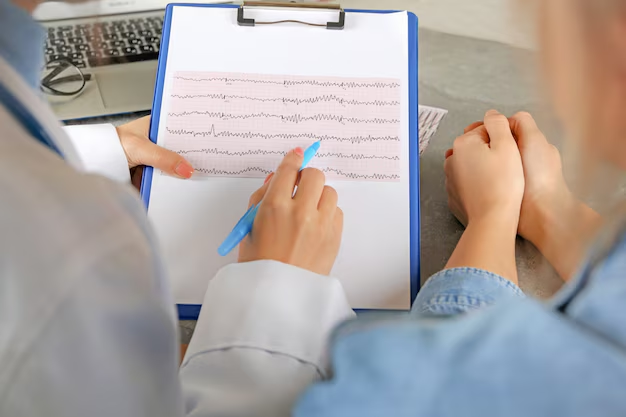Your Guide to How Is Parkinson's Disease Diagnosed
What You Get:
Free Guide
Free, helpful information about Parkinsons FAQ and related How Is Parkinson's Disease Diagnosed topics.
Helpful Information
Get clear and easy-to-understand details about How Is Parkinson's Disease Diagnosed topics and resources.
Personalized Offers
Answer a few optional questions to receive offers or information related to Parkinsons FAQ. The survey is optional and not required to access your free guide.
Understanding the Diagnosis of Parkinson's Disease: What You Need to Know
Recognizing Parkinson's disease (PD) early can be challenging, as its symptoms often develop gradually and can be mistaken for other health conditions. As a progressive neurological disorder primarily affecting movement, Parkinson's disease presents with a variety of symptoms, the most notable being tremors, stiffness, and balance difficulties. So, how is Parkinson's disease diagnosed?
Clinical Examination: The First Step
The diagnosis of Parkinson's disease fundamentally hinges on a comprehensive clinical evaluation. This often includes:
Medical History Review: A thorough review of your past medical history and any symptoms you may have experienced. Family history may also be pertinent if there appears to be a genetic link.
Neurological Exam: This involves an assessment of motor skills, coordination, balance, and reflexes. Tremors, bradykinesia (slowness of movement), rigidity, and postural instability are key indicators assessed during this examination.
Symptom Observation: Typically, a clinician will look for at least two of the cardinal symptoms to be present before considering a Parkinson's diagnosis.
Imaging and Tests: Supporting the Diagnosis
While no specific test can unequivocally diagnose Parkinson's disease, neuroimaging techniques can rule out other conditions. Common imaging tests include:
MRI or CT Scans: These help eliminate strokes or brain tumors as possible causes of symptoms.
DaTscan: A specialized imaging test that measures dopamine transporter levels in the brain and can support a Parkinson's diagnosis.
Further Evaluation: Observing the Response to Medication
Sometimes, physicians may prescribe dopaminergic medications as a diagnostic tool to observe if symptoms improve. If there is a significant improvement in symptoms, it supports the diagnosis of Parkinson's.
The Role of Specialists
Given the complexity of Parkinson's disease, consulting a neurologist specializing in movement disorders can be invaluable. These specialists are equipped to offer detailed assessments and can guide ongoing management and treatment plans.
As Parkinson's disease progresses, the need for comprehensive support extends beyond just medical intervention. Here, the exploration of financial and educational resources can become essential for individuals and families affected by Parkinson's.
Exploring Financial and Educational Resources
Addressing Parkinson's disease often encompasses navigating the intricate landscape of financial burdens due to medical expenses and care needs. Patients frequently require assistance to manage these expenses, and numerous programs and resources can provide relief:
Government Aid Programs: Several programs offer financial assistance to help with medical costs and caregiving expenses, such as Medicaid and Medicare.
Debt Relief Options: For those struggling with medical debt, exploring debt consolidation or relief options can alleviate financial stress.
Credit Card Solutions: Some credit card programs offer benefits tailored for medical expenses, providing flexibility in handling medical costs.
Educational Grants for Caregivers: These grants are available to support those who need to balance caregiving responsibilities with educational or professional development goals.
Parkinson's disease diagnosis is just the first step in a series of solutions and support available to those affected. By understanding both the clinical pathway and the supportive resources available, you can better navigate the challenges that come with managing the condition.
Resources for Financial Assistance and Support
🏛 Government Aid: Medicaid, Medicare, and Veterans Health Administration
🏦 Debt Relief Programs: Debt consolidation services and medical debt relief options
💳 Credit Card Solutions: Medical expense-focused credit cards with low-interest rates
🎓 Educational Grants: Programs for caregivers pursuing further education
Exploring these options can significantly ease the financial challenges associated with managing Parkinson's disease, offering much-needed support to those fighting this condition.
What You Get:
Free Parkinsons FAQ Guide
Free, helpful information about How Is Parkinson's Disease Diagnosed and related resources.

Helpful Information
Get clear, easy-to-understand details about How Is Parkinson's Disease Diagnosed topics.

Optional Personalized Offers
Answer a few optional questions to see offers or information related to Parkinsons FAQ. Participation is not required to get your free guide.


Discover More
- Are There Environmental Causes Of Parkinsons
- Can Alcohol Cause Parkinson's
- Can Concussions Cause Parkinson's
- Can Concussions Cause Parkinson's Disease
- Can Dogs Get Parkinson's Disease
- Can Dogs Get Parkinsons
- Can Dogs Have Parkinson's
- Can Dogs Have Parkinson's Disease
- Can Females Get Parkinson Disease
- Can Head Trauma Cause Parkinson's
